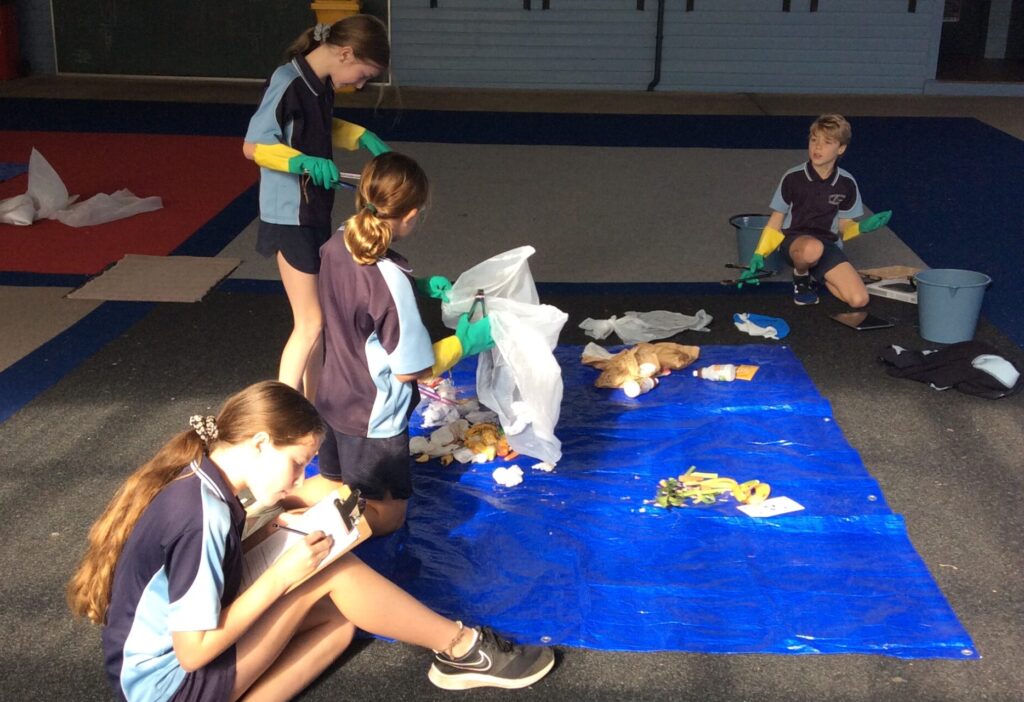Audit Tools
- School Biodiversity Audit (pdf 3MB) Rumbalara Environmental Education Centre
- Biodiversity Close Up (pdf 600 kb), CERES
- Biodiversity Audits, Lower Primary, Upper Primary & Secondary, Cool Australia
- Biodiversity Audit case study, Biodiversity and ICT, Sustainability in Schools.
- School water audit, Sydney Water
- Water audit tool, ResourceSmart Schools, Sustainability Victoria
- AuSSI school water audit, lower primary, upper primary, secondary, Cool Australia
- School water audit, Yr 6 -8 Geography, Waterwise QLD
- School stormwater audit, Yr 7 Geography, AWA
- Developing a school water use plan, Rumbalara EEC
- Students can audit their schools energy use using tools available from the Department of Education (DoE) Environmental Education webpages.
- Energy management, School Infrastructure NSW provides advice on energy use and strategies for energy efficiency (DoE intranet site only.).
- School energy audit toolkit, ResourceSmart Schools, Sustainability Victoria
- Energy audit proforma, Gibberagong EEC
- A simple guide to energy auditing, Rumbalara EEC
- Waste Audit template (.doc) Green Leaders & Sustainable Schools NSW
- Guide to Conducting a Waste Audit: This document guides you through the processes of a waste audit: making the case, preparing, conducting, recording, analysis and developing a school waste action plan. Includes NSW Syllabus links.
Stage 2 – 5 | NSW Department of Education & Training - AuSSI Waste Audit: Lower Primary, Upper Primary, Secondary Students engage in a school waste audit to determine the quantities and makeup of the waste generated at their school, then based on data students explore how to reduce their waste.
Stage 1 – 4 | Cool Australia - A Simple Guide to Conducting a Waste Audit: The waste audit looks at the different types of waste generated in the school, where it comes from and how it can be reduced.
Stage 2 – 5 | Rumbalara Environmental Education Centre - Waste Audit Toolkit: an operating practices manual that is intended to guide the development and implementation of waste audits in schools. Curriculum links to WA schools, but relevant activities and methods, WA Waste Authority
- School Waste & Recycling Audit: This booklet outlines 5 key steps for a schools waste audit.
SUEZ - School Waste Management Calculator: An excel document that assists schools to identify and record different categories of school waste. Part of a suite of education resources from regional Netwaste.
Netwaste - DIY Audit Kit: Kit includes resources that explain the audit procedures including the tasks that occur before, during and after the day of the audit. Designed for designed to be used by sites with less than 100 students, or for use by individual classes.
Wipe Out Waste Green Industries South Australia
Videos
- Terara Public School students decided to wage their own war on waste. After completing their own waste audit they are committing to reducing our two biggest waste offenders: soft plastics and food waste.
Video (3 mins 24 secs). - Erskine Park High School waste audit video (3 mins 24 secs)
- Wipe out Waste school program, waste audit video, BTN (3 mins 43 secs)
- War on waste: Waste sorting, ABC iview (46 secs)
